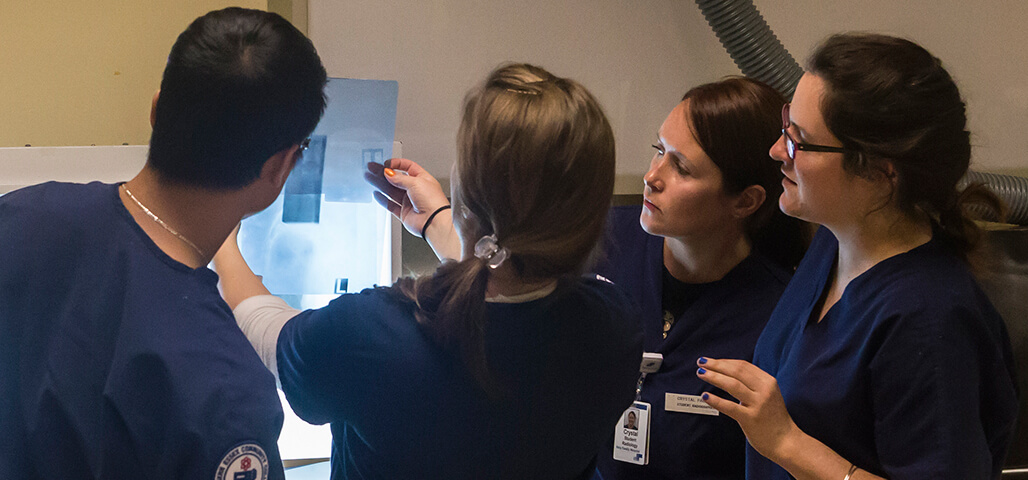Radiologic Technology Associate Degree

People who understand how to work technologically advanced diagnostic equipment are seeing bright futures in health care as the demand for radiographers continues to grow. NECC will prepare you to work with a variety of x-ray equipment in settings from hospitals to clinics, doctor’s offices – even mobile vehicles that provide radiology services.
Why Choose NECC?
NECC’s accredited program covers all aspects of radiologic care, including safety procedures, proper patient positioning, and understanding the technology used to create diagnostic images. NECC also has transfer agreements that will enable you to seamlessly transfer earned credits to earn a bachelor’s degree in medical imaging or a related field. With this program you will:
- Learn about human anatomy and physiology and radiologic tools and techniques
- Understand radiographic terminology, positioning, and image production
- Gain hands on experience with state-of-the-art diagnostic equipment
- Benefit from supervised experiences in clinical care settings
- Prepare for a career that is emotionally and financially rewarding
Because of NECC
You will be eligible to pursue entry-level technologists positions in a variety of health care settings or to continue your education to learn more about specialty diagnostic areas including Magnetic Resonance Imaging (MRIs) Computed Tomography (CAT scans) or mammography. Upon completion of the program you can:
- Sit for the American Registry of Radiologic Technologists (ARRT) national certification exam – upon successful completion you can apply for your Massachusetts license in Radiography
- Work in hospitals, clinics, doctor offices, and more
- Take advantage of transfer agreements to continue your education and earn your bachelor’s degree in medical imaging or a related field, saving thousands of dollars on the cost of a four-year degree.
Quote:
Northern Essex was close to home, affordable, and a good opportunity to get into health care.”
Allison Brody, Radiologic Technology
Courses and Requirements
Skip Required Courses and Program NotesProgram Pathway
A pathway is the most efficient sequence of courses semester-to-semester recommended for students to complete their degree. View the suggested pathway for the Radiologic Technology associate degree.



